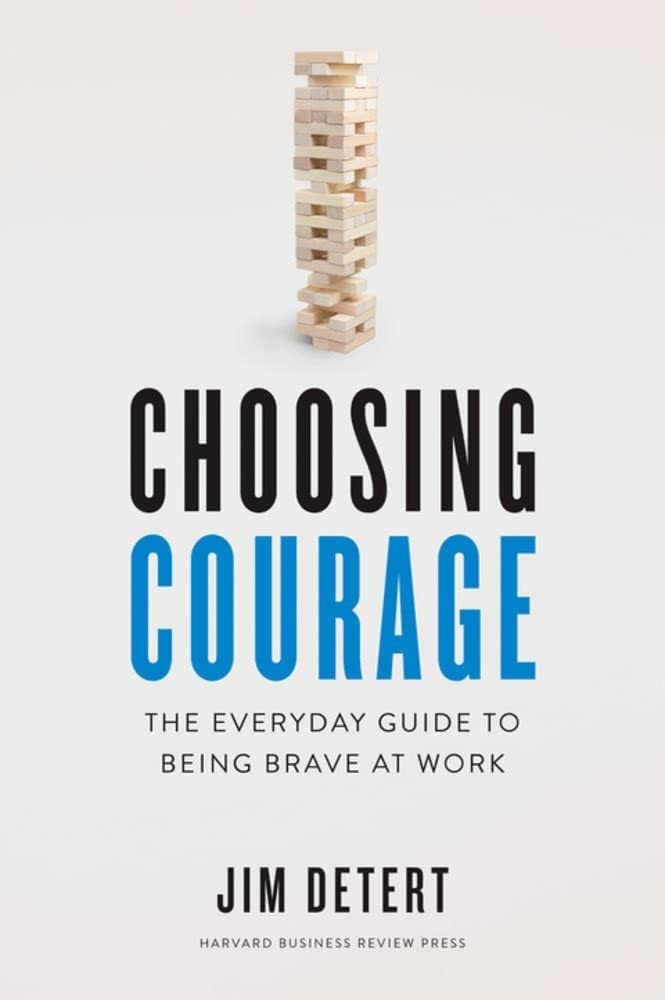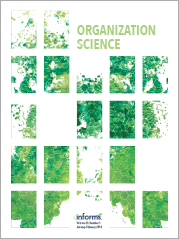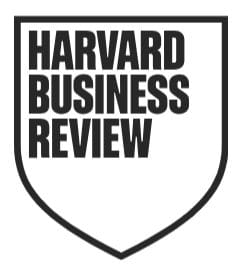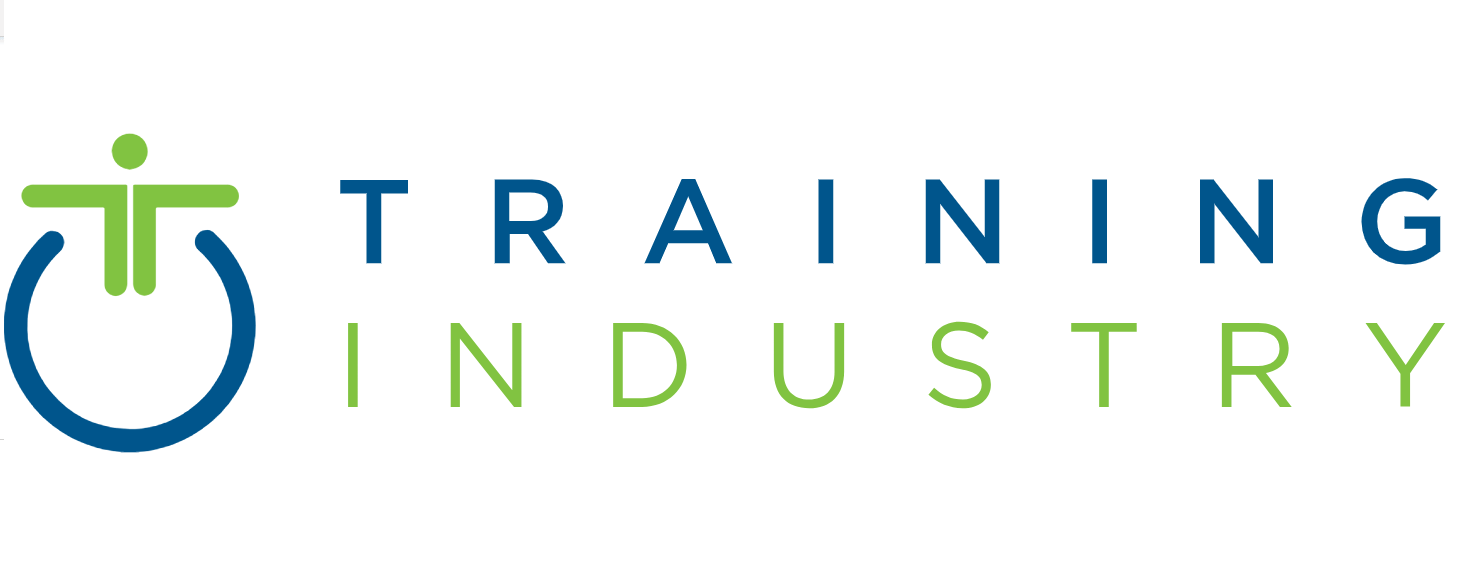Videos
Learn More About Jim Detert
What does it mean to be courageous at work and how does it impact leaders, teams, and organizational effectiveness? How can leaders model an environment of open communication where it’s safe for all to speak up?
Jim Detert, Ph.D. (“DEE-tert”), an award-winning social scientist who focuses on improving the agency and effectiveness of individuals and the cultures within which they work, is the leading expert on the role of workplace courage. By centering on not just the what but also the how of building a culture of honest communication and emboldened action, Detert gives leaders and employees the tools to improve their odds of successful interactions despite feelings of risk or fear.
“We have to drop the myth that there’s a personality type for courage. There is no such thing. Courage is simply the willingness to act despite fear,” explains Detert, the John L. Colley Professor of Business Administration at the University of Virginia’s Darden School of Business. “By teaching executives and managers specific skill sets and actions, they will learn how to manage difficult interactions and follow up accordingly.”
By encouraging organizations to build the everyday management skills that have become underappreciated and undervalued in today’s environment – including constructively challenging bosses, confronting peers, and giving difficult feedback to subordinates – Detert empowers managers to lead with values and competence, inspiring teams to communicate openly and effectively.
Climb the Courage Ladder to Conquer Fear
Detert’s research shows that most employees sometimes remain silent when they know they should speak up due to a combination of fear and lack of confidence in their communication skills in high-stress, emotion-laden situations. Explaining that these skills can indeed be taught, he provides leaders with concrete strategies for developing and practicing what he calls “competent courage,” allowing managers to model healthy interpersonal communication and foster a culture of courage.
Whether the goal is managing difficult interpersonal conversations more effectively or persuading top leaders to adopt systemic change and innovation, Detert’s talks and workshops are based in deeply researched tools that help take organizational communication to the next level. Detert’s unique high intensity learning process – The SUCCESS Method – includes the building of a “courage ladder” and personalized simulations of specific conversations to build skills with high likelihood of transfer to on-the-job challenges.
“Everybody has a set of rungs on a ladder that go from ‘it’s a little frightening’ to ‘it’s terrifying,’” explains Detert, author of “Choosing Courage: The Everyday Guide to Being Brave at Work” (Harvard Business Review Press, 2021). “The key to moving forward individually is to build and climb your own courage ladder and start practicing ways to be courageous enough to change cultures.”
Ensure Psychological Safety to Build True Learning Organizations
A collaborator with Harvard Business School Professor and psychological safety pioneer Amy Edmondson, Detert stresses that leaders must create an environment of psychological safety as a vital starting point for organizational learning to take place.
“Leader behavior is the most important lever for creating a culture of psychological safety,” Detert explains. “For leaders to get the input they need to be a learning organization, employees must feel safe being honest with their feedback at every stage of the process.”
The ability to lead with competent courage is critical for any leader interested in psychological safety. “There’s no point espousing the importance of psychological safety,” says Detert, “if you as a leader won’t courageously step up and challenge the norms, practices and people who are making it feel unsafe to speak up or take prudent risks.” Detert advises leaders to drop the practice of “encouraging courage” and replace that with courageous actions of their own that make courage less necessary for those they lead.
###
Jim Detert is the John L. Colley Professor of Business Administration and the E. Thayer Bigelow Research Chair in the Leadership and Organizational Behavior area at the University of Virginia’s Darden Graduate School of Business Administration and a professor of public policy at the Batten School of Leadership and Public Policy. Prior to joining UVA, he was a tenured full professor at Cornell University’s Johnson Graduate School of Management.
Detert has written dozens of leadership- and ethics-related cases and experiential learning materials and designed and delivered classes and workshops to thousands of learners at all levels around the world. He has received numerous awards for his teaching in both MBA and Executive MBA programs.
Detert’s research and consulting focuses on workplace courage, why people speak up or stay silent at work, ethical leadership and decision-making, and experiential leadership development. His research has appeared in all the top academic management journals and has won several best paper awards. He is a frequent contributor to Harvard Business Review and Sloan Management Review, and the author of the book “Choosing Courage: The Everyday Guide to Being Brave at Work” (Harvard Business Review Press, 2021).
Detert received his M.A. in sociology and Ph.D. in organizational behavior from Harvard University. He also holds an MBA from the University of Minnesota and a BBA from the University of Wisconsin.
Jim Detert is available to advise your organization via virtual and in-person consulting meetings, interactive workshops and customized keynotes through the exclusive representation of Stern Speakers & Advisors, a division of Stern Strategy Group®.
Speaking Up and Standing Out at Work Through Everyday Courage
Is the courage to speak up at work an inborn trait that either you have, or you don’t? According to University of Virginia Darden School of Business professor Jim Detert, Ph.D., the skills required to be competently courageous can be developed by anyone through practice. In this revealing talk, Detert presents research-backed strategies for building courage – from the physical, like controlled breathing, to the mental, like cognitive reframing. By learning how to manage emotions, show credible empathy, speak with humility and defuel initial reactions, audiences will leave with practical strategies for speaking up and taking bold action when necessary – with confidence and without regret.
Create the Conditions For Positive Impact by Leading With Competent Courage
When it comes time to speak up at work and face potentially difficult interactions, the willingness to do so is only part of the equation. Being effective when speaking up is also critical, says Darden School of Business professor Jim Detert, Ph.D., using what he calls “competent courage.” In this insightful presentation, Detert draws on his book, “Choosing Courage,” to present frameworks for how to create the right conditions and capabilities to speak up effectively and have a positive impact on others. Using his customized assessments and learning tools – such as the Workplace Courage Acts Index and Courage Ladder – Detert is able to outline the skill set and actions that prepare people to effectively manage difficult interactions and follow up accordingly. Leaders will learn how to recognize traps, live their values, and be empowered to see competent courage as both specific instances handled skillfully, and ongoing actions taken to prepare for and move forward after courageous actions.
How Safe is Your Work Environment? Practical Strategies for Modeling Desired Behaviors
Organizations can’t effectively learn without honest input from employees. For workers to feel safe giving honest input, Darden School of Business professor Jim Detert, Ph.D., says it’s up to leaders to not just model the right behaviors but also to make structural, policy, and symbolic changes. In this engaging presentation, Detert shares his accessible framework that presents four strategies leaders can take to encourage employees to provide honest input and explains why leader behavior is the most important lever for improvement. Attendees will be able to put these strategies into action immediately and optimize organizational learning through open dialogue.

Choosing Courage: The Everyday Guide to Being Brave at Work
(Harvard Business Review Press, May 2021)

The Agency to Implement Voice: How Target Hierarchical Position and Competence Changes the Relationship Between Voice and Individual Performance
(Organization Science, October 2022)

Situational Moral Disengagement: Can the Effects of Self-Interest be Mitigated?
(Journal of Business Ethics, December 2013)
Voice Flows to and around Leaders: Understanding When Units Are Helped or Hurt by Employee Voice
(Administrative Science Quarterly, October 2013)

Why Employees Do Bad Things: Moral Disengagement and Unethical Organizational Behavior
(Personnel Psychology, March 2012)

Implicit Voice Theories: Taken-For-Granted Rules of Self-Censorship at Work (Award-Winning Research)
(Academy of Management Journal, June 2011)

Leadership Behavior and Employee Voice: Is the Door Really Open?
(Academy of Management Journal, August 2007)
Lead By Bringing Everyday Courage to the Workplace
University of Virginia Darden School of Business Professor Jim Detert, Ph.D., is the leading expert on workplace courage and, specifically, the challenges of getting people to speak up effectively at work. A social scientist whose focus is on improving individual agency and effectiveness at work, he offers experiential learning opportunities for leaders at all organizational levels. By showing how to lead with competent courage, he empowers employees to take the bold actions necessary for individual and organizational learning and effectiveness – giving honest feedback, challenging norms, changing practices, and taking innovative action. Detert’s research-backed frameworks allow leaders to learn, practice, and apply the mindsets and behaviors needed to foster a high-performing, high-engagement, psychologically safe work environment. He is available to discuss any or all of the following topics in programs that can be customized to meet the needs and goals of your organization with the added option of meeting virtually or in-person.
- Speaking Up and Standing Out at Work Through Everyday Courage
- Leading with Competent Courage
- Practical Strategies for Modeling Desired Behaviors for a Safe Work Environment
- How to Build Your Courage Ladder
- Perfecting Persuasive Communication Strategies
Create and Climb Your Courage Ladder
Everyone has a courage ladder, from feeling that a situation is slightly frightening at the bottom to truly terrifying at the top. The key to creating everyday courage is to build and climb our own personal ladder one rung at a time. In this highly interactive workshop, University of Virginia Darden School of Business Professor Jim Detert, author of “Choosing Courage,” guides participants through identifying their own challenging situations and empowering them to create and practice strategies and tools for successfully navigating them. Attendees will be able to take these practical tools and individualized strategies back to their organizations, allowing them to face stressful conversations and bold actions with a new sense of confidence and competence.
Perfecting Persuasive Communication Strategies
As individuals build the skills to speak up in interpersonal situations at work when necessary, the next step is to ensure effective, persuasive communication to broader audiences. In this customized, interactive workshop, University of Virginia Darden School of Business Professor Jim Detert, the leading expert on workplace courage and speaking up, uses research-backed tools and techniques for creating change through how problems and solutions are presented or “sold.” Detert provides attendees with opportunities to identify important issues, formulate plans for how to address these issues, and employ strategies and tools to skillfully persuade senior leaders to address them. Through hands-on learning and simulations, participants will be able to more confidently bring concerns to senior decision makers and apply persuasive communication skills to increase the likelihood of action.
"Best class I’ve taken in my life."
“'Courage' is the most important lesson I ever learned from you. It helped me be a better, and more authentic, leader."
"I can’t even begin to explain how much your presentation literally changed the path I was on. I don’t want to be cliché and say 'this week changed my life', but honestly, even my mom’s death 4 years ago didn’t put me in the place I was for so long this year."
“Our session was one of the most intellectually exhilarating moments of my life. THANK YOU for challenging us in a thought-provoking way.”
“Every now and then I have been in situations which I would define as challenging. … I can say this with confidence that every time I took an action or made a decision, in some parts it was inspired by the learnings I received in your class.”
“I mustered the courage to do my courage ladder rung, and got up in front to ask the Secretary of the Navy a question at a large conference. … What really amazed me, because I hadn’t thought of this as a potential outcome, is that so many people I had never met came up to me and introduced themselves, talking about my question a conversation starter. I have been able to network with many more people than I would have been able to otherwise. I have always focused on 'what could go wrong' and hadn’t even considered what positive things might come of my action, aside from getting more comfortable with being uncomfortable. The courage ladder definitely motivated me to just go for it.”
“Prior to our time together, I never would have welcomed a conversation that invited healthy tension. I would have worried and climbed up the ladder of inference rung by rung and said nothing directly to the individual. Now, I welcome the opportunity to have the ‘difficult conversation.’ This is a note of gratitude for your research and your pedagogy. Your work in practice!”
Additional Praise for Jim Detert's Presentations
"This was easily the most effective and useful training event I've been involved in. I really appreciated being pushed out of my comfort zone. I resisted to the last minute at each stage! But as with all things worthwhile that involve some pain, once I did the work I realized the benefit (which I expect to continue to accrue!)."
Praise for "Choosing Courage"
"No one else writes as authoritatively and compassionately as Jim Detert about what it means and what it takes to speak up about what really matters. Whether you're working at your first job or running a company, this inspiring book will help you make a difference."
"Jim Detert has produced an insightful, practical book on overcoming fear. Whether you sit at the top, middle, or bottom of an organization, 'Choosing Courage' will help you find the nerve to stand up for your principles and build the skills to drive change."
"Jim Detert enables us to have the tough discussions essential to solving today's intractable challenges, and he shows us how to be 'competently courageous' so that our courage pays off for us and for our organizations. 'Choosing Courage' is empowering for leaders at every level."
"There couldn't be a more urgent time for leaders at all levels and in all industries to embrace the importance of courage to organizational success. Thankfully, Jim Detert has created the blueprint for courageous leadership."
"Jim Detert has zeroed in on arguably the most critical conundrum in the workplace today. The everyday environment demands more personal courage than ever before while, at the same time, it makes it more difficult than ever to exhibit the courage required to navigate all the challenges of the day. Detert helps us find our way. Well done!"






































